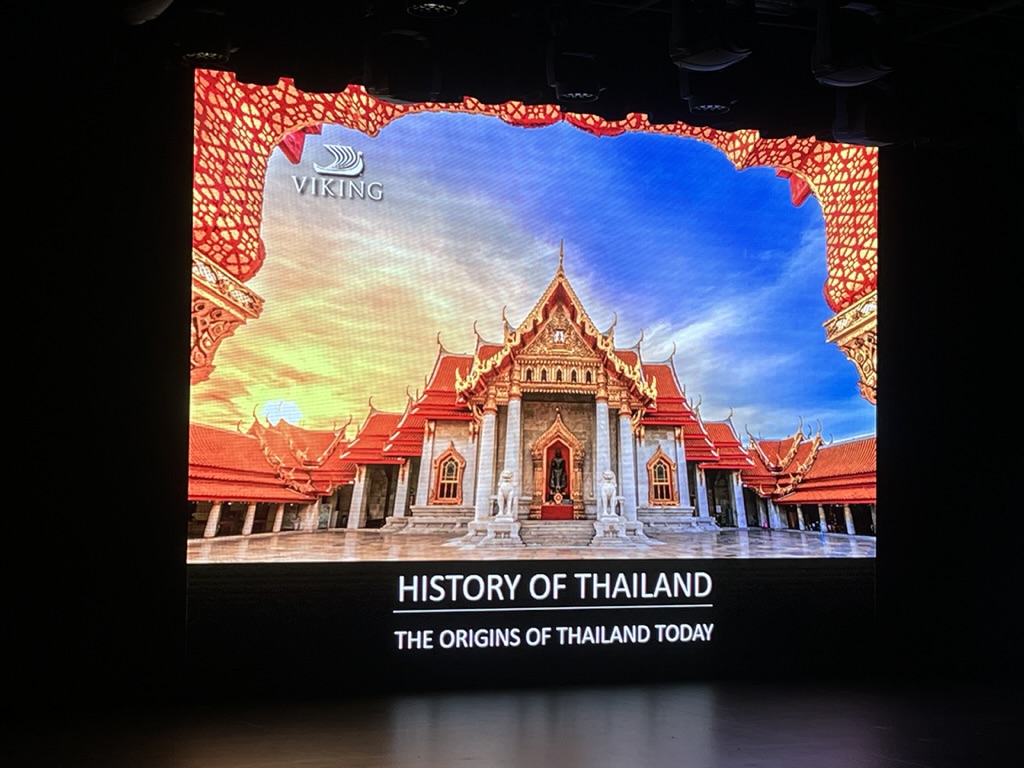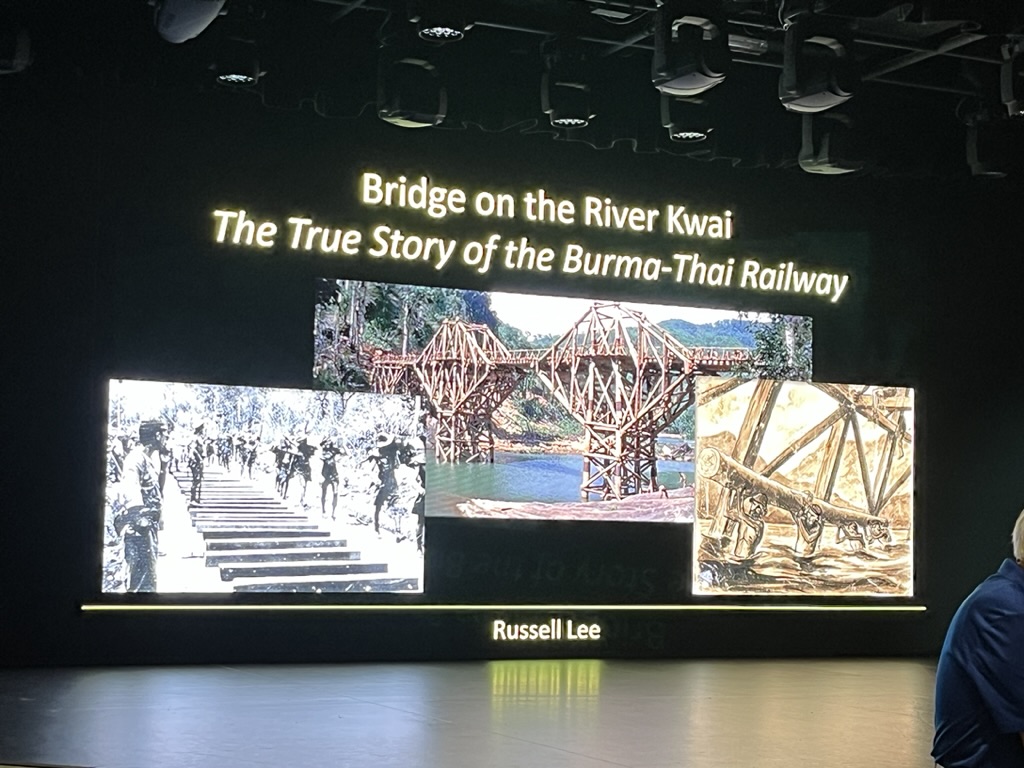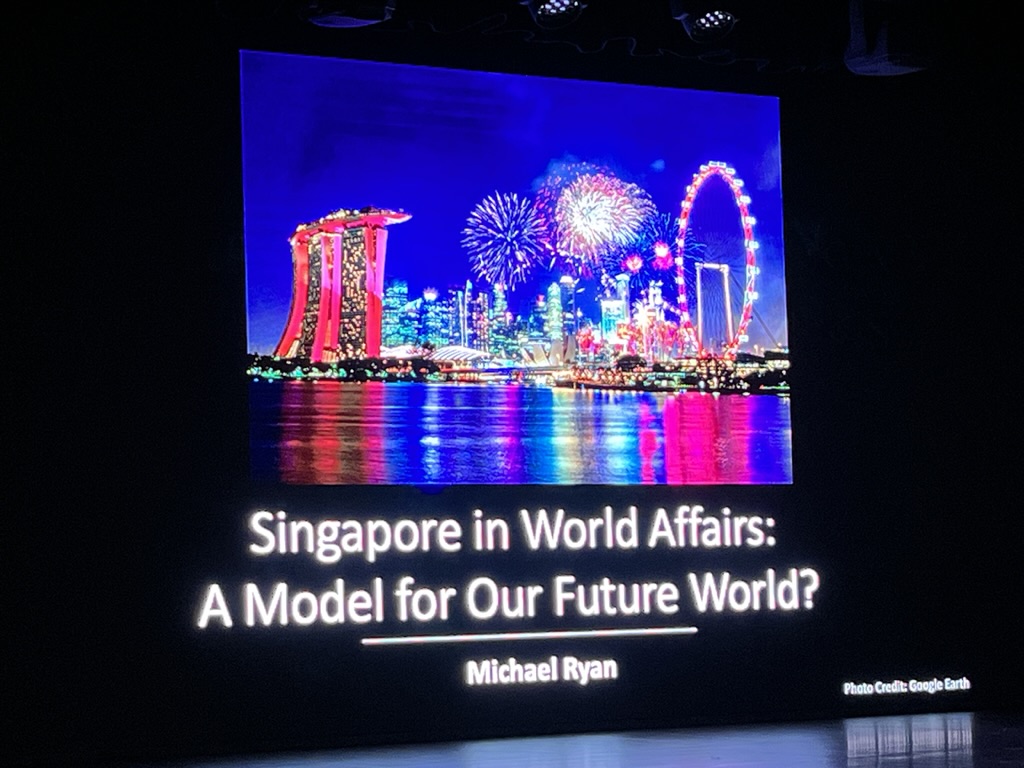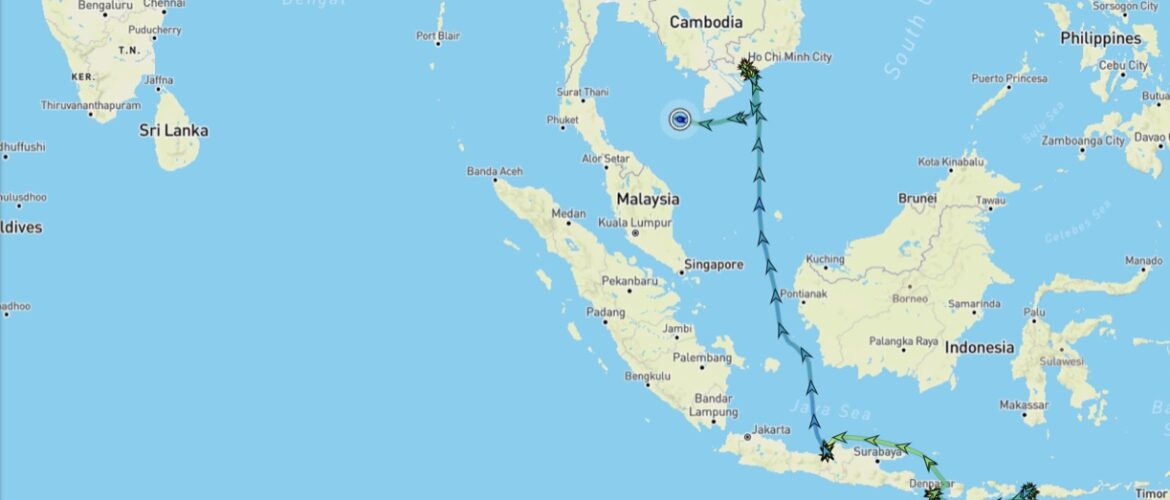Noon Report:
- Location: N 08° 16.30′, E 103° 49.00′
- Speed: 15 knots
- Course: 281º
- Weather: Overcast
- Temperature: 25º C, 77º F
- Wind: E 17 knots, 19 mph
- Seas: 1 meter, 3 feet
It’s really a matter of finding a free treadmill.
Cheryl has discovered that it’s easier to find a treadmill at 7:15 am than at 6:15 am. And…in this part of the world there is no real difference in temperature between those times. So there is nothing to be gained on sea days by not sleeping in. It’s all very logical.
So by 9:30 we were done exercising, cleaned up, dressed, breakfasted, and in the Theatre (barely) for the first lecture.

This was a great overview of the long and varied history of this unique southeast Asian country.
Cheryl’s Factoids on THAILAND:
- This area has been run by a succession of empires for thousands of years with the modern Thai empire established in 1238.
- Modern Thai (named Siam from 1782 to 1932) defeated the Burmese Empire.
- the king offered war elephants to President Lincoln to use in the Civil War.
- Anna (as in “Anna and the King of Siam”) was hired by King Rama IV.
- King Rama V abolished slavery. (Every king of Thailand is named Rama.)
- In 1932 there was a bloodless coup and the nation went from an absolute monarchy to a constitutional monarchy. There are still periodic coups.
- Alone among the South East Asian nations, Thailand has never been conquered or been held as a European colony. Since Burma (Mayanmar) was colonized by the British and Indochina was colonized by the French, both sides were persuaded to view Thailand as a natural buffer zone. Also Thailand has a policy that “the reed that bends in the wind does not break” so they join with the strongest people when they cannot themselves win a war. During WWII, when the Japanese demanded that neutral Thailand let them use the land as a base for their armies so they could attack Singapore and Burma, Thailand was given 2 hours to decide, then the Japanese moved in. Rather than start a war, the Thais pragmatically gave in – but when the war was over, Thailand wanted to be a part of the Allied forces. Thailand was required to return all the territories that had been added to it under the war, then were allowed to join the UN.
- The Thai people are very tolerant of other religions and cultures but there are several things that are sacred: 1 – nationhood, 2 – the royal family – you don’t speak negatively about them or you wind up in jail.
- There are separate language customs for women versus men, and men can have minor wives.
Afterwards we hung out in the Theatre – saving our seats for the 11:00:

Russell Lee, as always, presented his topic in an informative and engaging way. He delved into the history of the railroad the Japanese needed built thru 258 miles of jungle, over 2 mountain ranges, and various rivers through Thailand to Burma so they could invade Burma and then India. He contrasted the situation portrayed by the movie with the reality discussed in interviews with survivors and exposed in the artwork (often drawn with their own blood) created by the POWs. After WWII, those drawings helped to get many of the Japanese leaders convicted of War Crimes. After the war, Japan was required to pull up the entire railroad and a memorial stone was laid to commemorate all the POWS and forced laborers who died building it. (However, people would still come looking for “The Bridge On The River Kwai” so a different river with a bridge was renamed Little Kwai for the tourists).
After lunch we had free time until Church at 5:30 so Cheryl decamped to the warmth of the pool deck to read while I stayed in the stateroom to study and work on the upcoming (here before you know it) private excursion to Petra.
6:30 saw us back in the theatre for the first of our lectures on Singapore:

Michael Ryan delved deeply into Singapore’s transformation from a fishing community to a world-class economic powerhouse.
For BBB tonight Bruce, in a nod to the Oscars, played a series of selections of movie music and asked questions such as “What move used that song?” “Who was the star of that movie?” “What movie beat the movie that featured this song out for Best Picture?” It was typically brutal (Bruce wouldn’t have it any other way) and we scored a typical 22/43 – respectable we thought, but nowhere near the running.
Back in the stateroom, we watched a Russell Lee lecture on “The Two Vietnams” that we had missed earlier and spent some time packing for our excursions tomorrow.
So that’s the day. More adventures tomorrow.
Till then, R
